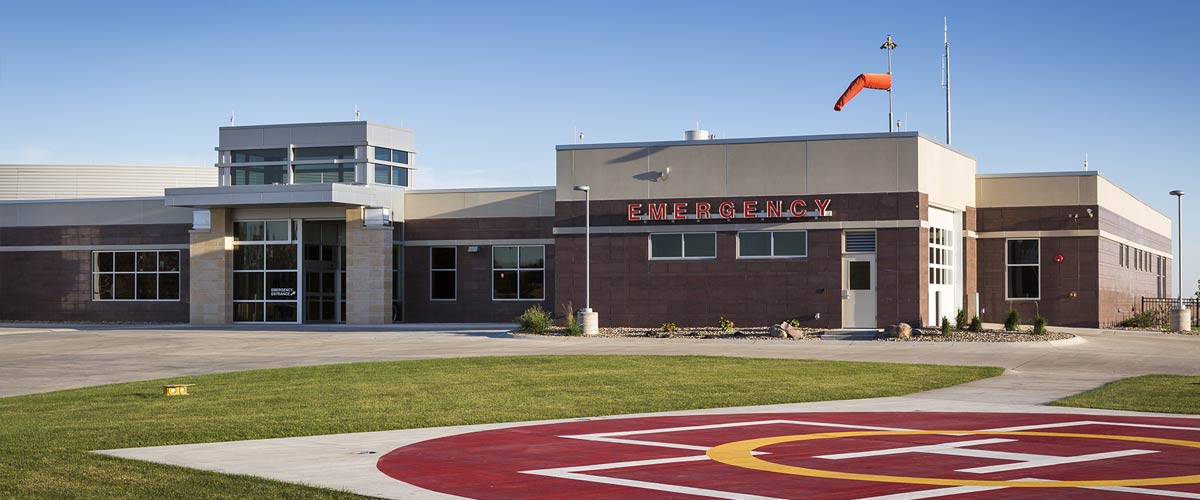Emergency Center has its own private entrance along the B-40 highway that is available 24/7 for patients with a medical emergency. We have six exam rooms to provide privacy for our patients with convenient access to our Diagnostic Imaging and Surgery Center for quick diagnosis and treatment. The two trauma rooms are integrated with the latest Avel e-Emergency technology that has a two-way video available for our 24-hour doctor to communicate with board-certified emergency physicians and emergency-trained nurses from Avera in treating trauma, heart attack, stroke, and other critical conditions. For those with conditions that are not considered as emergency but still need immediate medical attention, you may come to our Urgent Care Clinic.
Upon Arrival
When you arrive in the Emergency Center, you will be greeted, and an emergency health professional will conduct a brief medical history and exam to determine the severity of your condition. Emergency departments triage patients, meaning patients are treated in order of severity of illness rather than arrival time. If your condition changes at any time, notify the nurse immediately. Registration information will be taken by an admissions and registration counselor and will not delay medical care.
When should you seek Emergency Care
- Chest pain or any symptoms of a heart attack, including severe chest pain, sweating and shortness of breath. Heart attack symptoms can vary from one person to the next.
- Breathing difficulty, shortness of breath, especially if the person has known heart or lung problems.
- Symptoms of a stroke including sudden dizziness, weakness, loss of coordination, balance problems, or vision problems.
- Abdominal pain (sudden or severe)
- Loss of consciousness (with or without head injury)
- Head pain (sudden or severe)
- Head injuries
- Choking
- Poisoning
- Broken bones
- Burns involving hands, face, or large areas of the body
- Open fractures
- Severe lacerations (cuts)
- Injuries as a result of a car accident
- Fever in the elderly or infants <3 months
- Sudden severe pain
- Animal bites
- Pregnancy complications
- Severe headache with no migraine history
Emergency Treatment
Our providers and nurses are specialists in emergency medicine. They will examine you and will create a plan of care based on your individual treatment needs. Lab tests and diagnostic procedures may be ordered to further help diagnose your condition. After evaluation and treatment, the emergency services team will either:
- Discharge you and allow you to go home with instructions for your care
- Admit you to the hospital for surgery, observation or inpatient care
- Transfer you to a larger hospital if your medical or surgical condition requires more specialized personnel or equipment
Follow-up Care
The primary role of the emergency provider is to treat an emergency medical condition. Upon discharge you will need to follow up with your primary doctor or practitioner for further evaluation/treatment.
Family and Guests
A comfortable waiting room is provided for family and friends. Depending on your condition, a family member or friend may be with you in the exam and treatment room. However, there may be time when visitors may be limited or restricted. If visitors are permitted, please limit visitors to one to two people.


